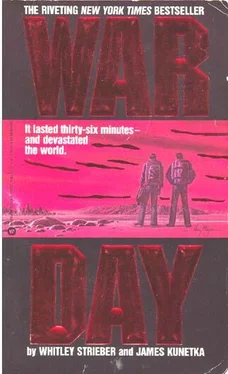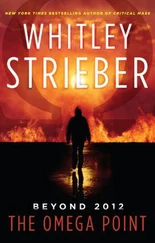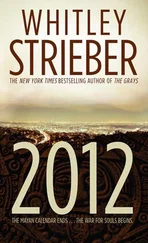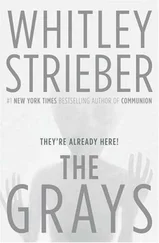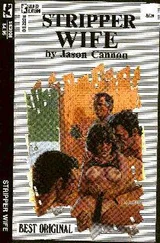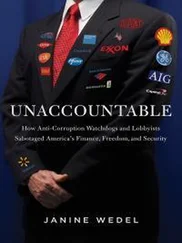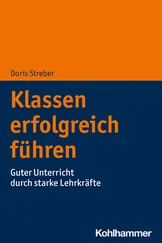I swallow the last of my milk and get up. Anne and Andrew and I hold each other for a moment, our faces touching, our arms around one another’s shoulders. We have always hugged like this, the three of us. For me it is a symbol of our endurance as a family and as civilized people, and of the truth of our love.
We say good-bye in the hug. Anne’s expression remains firm and calm. It’s not that we ignore our tears. I remember a time when people were embarrassed by such displays of emotion, but no more. We need our luxuries, and tears are cheap, but this is not the moment for them.
Jim and I leave. The hourly Dallas Transit bus will stop out on Forest Lane in ten minutes. We refuse Andrew’s offer of a ride to the bus stop. I’d rather he and Anne stayed together, and, in truth, I don’t think I can bear to prolong this parting.
The sun is already hot. We pass through the neighborhood and turn onto Piano Road. Abandoned condominiums line both sides of the street. Chateau Versailles, Woodridge, Oak Park II—names from the past. There is no longer a housing shortage in this country, not with a thirty-percent population decline in five years.
Our little nuclear war was not about ultimate and final ends at all. The issue was not Armageddon, it was consequences. Seven million people died on Warday. My family and I were twelve miles from Ground Zero of one bomb, and we survived.
We are used to death, though. All of us know how easy it is to die. Not an American lives who has not lost somebody—friend, family member, lover. More than sixty million people have died in the years since Warday, of malnutrition or diseases brought on or made worse by weakness. Some have died from radiation poisoning. Others have given their lives to cancer and the new disease, NSD.
Jim tells me that the British Relief estimates that there are still a quarter of a million war-related deaths every month. If I die of cancer, I will be counted among them one of these days. Warday was a flicker of hell. The rest has been consequences.
Only the first ragged salvos of missiles were actually fired. Immediately upon their detonation, both sides experienced the collapse of their elaborate command, control, and communications nets, and the war went out like a carelessly struck match.
I don’t think anybody ever seriously considered that a limited nuclear war would be as brief as it actually was. God knows what would have happened to us if there had been another exchange, or if the two sides had been able to carry out even the smallest part of their plans for each other. Consequences only have meaning when you are living in them.
In New York I learned how it felt to get caught in a “trivial” nuclear war. Here in Dallas I have learned every agonizing detail of the consequences—the long, unforeseen drama of the aftermath.
No planner ever dreamed that it would be as small as it was. No doubt some prewar strategists would have felt confident about a nuclear exchange like the one we had. I can see the memo now:
“As minor a megadeath level as six is sustainable, and planning must include the possibility of even greater losses within the parameters of acceptability.”
As many died on Warday in this country alone as in all of Hitler’s gas chambers. And afterward—all I can say is that the death of friends no longer surprises.
On this fine Dallas morning Jim walks along beside me, silently. He was like this years and years ago, on patrol in Vietnam, his eyes seeming to look inward, his face in almost meditative repose.
I remember the day we got on that Pan Am jet to come home. The moment the plane was in the air he changed back to his old self, voluble, full of laughter, his wit at turns fierce and gentle. Now the silence is customary. Jim has killed to stay alive, and he has seen hard things. Because he got the flu early, he was able to come and go as he pleased during most of the epidemic. To this day he is short of breath from the scarring on his lungs, but he survived. A week after his recovery he took his camera and notepad and traveled through the Midwest on behalf of the Dallas News Herald. It was the height of the epidemic. He walked the streets of Cincinnati during the Ten Days, and saw what a modern American city in the grip of an uncontrollable plague was like. He took the classic photograph of the stacks of dead burning in Eden Park. Never once has he spoken about his experiences there, and nobody asks him to.
His pictures and published account are sufficient testimony.
People greet us at the bus stop. Winnie Parker embraces me, so does John Gordon. I can understand why modern custom has replaced the handshake. To hold others is to maintain something. A handshake confirms distance, and we don’t need that anymore.
The bus comes at 8:12, right on time. We get in, jamming to the back as best we can. Because of the cost of parts, it can be very expensive to run a car, but the bus fare is two cents here in Dallas.
The bus soon reaches the Central Expressway and turns in toward the downtown area. The only time it leaves the expressway is to stop at the Meadows Building, where the Centers for Disease Control has its regional office. I suppose that it is the largest non-military agency of what remains of the United States Government.
Maybe the Agriculture Department is larger, but I doubt it. CDC is heavily supported by the British. U.S. tax collection procedures are still too minimal to guarantee the kind of budgetary consistency a massive operation like CDC requires. What the English do is simple: they pay CDC’s salaries out of their general exchequer, then bill the U.S. Federal Reserve Bank in Atlanta, which transfers gold down at Fort Knox from the American pile to the British pile.
Half the passengers on the bus get off at CDC. The rest of us continue on into downtown. A group of girls in Rat Patrol uniforms sing a familiar song, made popular by the rock group Sunshine.
“Earliest morning, hour of sweetness
Surely begotten just to remind us
That night is completed
And we can begin now, a brand new day.”
I must confess that I don’t like Sunshine’s relentless good cheer any more than I liked the facile anger of The Bad back before the war. I was a Bach fan back then, and I am a Bach fan now.
But the Rat Patrol girls are fresh-faced and full of the winsome joy of their song. To a man my age, the young are so beautiful to see.
“Hey, Whitley, we’re here.”
“Sorry.” I follow Jim out of the bus. We are at the Adolphus Hotel, which is the Southwestern headquarters of the British Relief. And some say, also, the true seat of government of the Southwestern United States.
The Adolphus is in superb repair, unlike many Dallas structures, which have suffered mainly from this country’s continuing glass shortage. There are no cracks in the facade of this beautifully restored old hotel. I can remember, dimly, coming here with my father, driving up from San Antonio in his black Cadillac, when he was doing business with a prewar billionaire named H. L. Hunt.
Dad and his partners were trying to interest Hunt in drilling for oil in Lavaca County in South Texas, but I don’t think they ever succeeded.
The Adolphus of today is much more elegant. We pass through big doors elaborate with polished brass, and confront at once a receptionist behind a wide desk. To her right is a Phillips computer, its screen glowing. To her left is a communications console. She is wearing the summer uniform of the British Emergency Medical Relief Organization, a white peaked cap with blue trim, white shirt with blue-and-gold epaulets, white skirt, and white shoes. Altogether, she radiates health and a kind of deep, interior confidence I remember well. It was commonplace in the prewar United States.
Читать дальше
